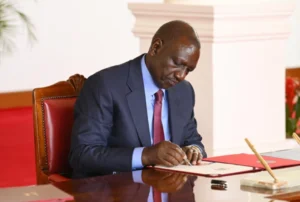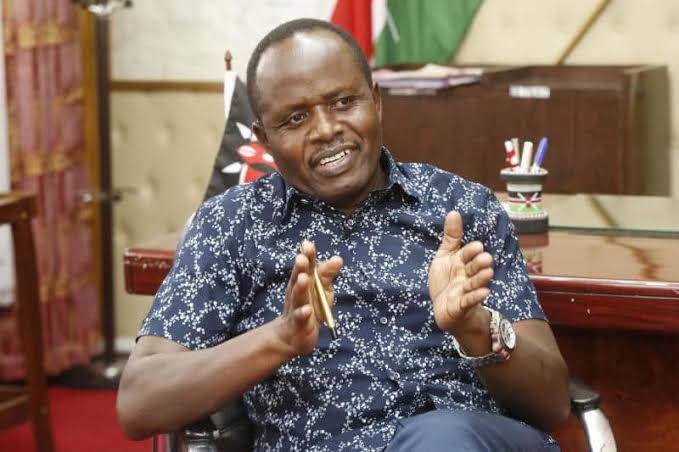Governor George Natembeya has come out strongly against President William Ruto’s plan to introduce strict vetting procedures for people entering and leaving Kenya.
According to Natembeya, the new measures are not only unrealistic but also risk causing more harm than good.
Speaking during a recent interview with NTV, the Trans Nzoia governor questioned the logic behind such intense screening at border points, saying that it could lead to unnecessary delays and frustrate ordinary citizens and traders who depend on smooth cross-border movement for their daily livelihoods.

George Natembeya, the governor of Trans Nzoia, Kenya. (Photo: George Natembeya/Facebook)
To make his point more relatable, Natembeya used a simple but powerful example. He told the president that not everything in life requires heavy vetting.
“Even you, Mr. President, did not vet your wife before marrying her,” he said, a remark that has since drawn attention for both its humor and honesty.
According to him, sometimes trust is necessary, and problems should be handled if and when they arise, not by punishing everyone with suspicion.
The national government has announced that it plans to roll out a new set of border control procedures which include background checks, personal interviews, and tougher entry rules.
Officials claim that these steps will help fight crime, terrorism, and illegal immigration. But Natembeya sees this as an excuse to enforce harsh policies that will end up hurting the common mwananchi.

Trans-Nzoia Governor George Natembeya/FILE
He emphasized that Kenya is surrounded by friendly nations like Uganda, Tanzania, Somalia, and South Sudan, and that many families and businesses rely on the ability to move freely between countries.

President William Ruto signs the County Allocation of Revenue Bill, 2024, at State House in Nairobi on December 6, 2024. PHOTO | PCS
“We are connected to these countries in many ways. People come here for work, school, healthcare, or to visit family,” Natembeya said.
“We can’t treat them like criminals just because they want to enter Kenya.” He warned that these kinds of policies could sour relations with neighboring countries and even harm regional unity.
His concern is not just about diplomacy, but also about the practical impact on people who already struggle to survive.
As a former provincial commissioner, Natembeya understands how the security system works, and he believes the government is heading in the wrong direction.
Instead of relying on strict vetting, he urged the state to invest in better technology, such as smart surveillance, and also to build stronger partnerships with other countries so that information can be shared in real time.
“We need to be smart, not just tough,” he said. “Security is important, but it should not come at the cost of human dignity and freedom.”
Natembeya’s statement is a reminder that leadership is not just about making rules, but about understanding the lives of ordinary people. His bold words have sparked a national conversation about the balance between safety and personal freedom, and whether the government is doing enough to respect both.



